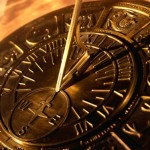CALL FOR PAPERS – CISH World Conference, Jinan, China : August 2015

Commission Internationale d’Histoire et d’Études du Christianisme
XXII Congress of International Commitee of Historical Sciences
JINAN (China) 27-28 August 2015
CIHEC announces a Call for Papers for its three sessions in connection with the CISH World Conference in Jinan, China, in August 2015.
The themes of the sessions are as follows:
1. Indigenisation
 From its earliest location around the Mediterranean, Christianity has spread during its two-thousand-year history to each of the world’s continents. At some times, Christian missionaries have been assisted by political power or even direct military force and, at others the faith has been propagated by entirely peaceful means. In either case, missionaries and converts have faced the task of presenting Christianity in languages and with arguments that make sense to local people and of considering how far forms of worship and even ethical norms can be adapted to local cultures. A key question in such situations has always been the relationship of Christianity to previously dominant religious traditions, and the answers have ranged widely from the extremes of confrontation or adaptation, to the many variations in between. Some examples of such problems and solutions are well-known, as for instance with the Jesuits in seventeenth-century China or the Celtic and Roman missions to Anglo-Saxon England. Equally well known are the ‘independent’ churches of nineteenth and twentieth-century Africa and Asia which aimed to present a more authentically indigenous form of Christianity than that available in the ‘mission churches’. But even in countries with a centuries-long Christian history there have been attempts to construct a Christianity that would be more genuinely ‘of the people’. This was one of the objectives of the sixteenth-century Reformers, and, to take a particularly controversial twentieth-century example, it was also one of the aims of the so-called ‘German Christians’ in the Weimar Republic and Nazi Germany. As with this latter example, indigenization has sometimes gone so far that hostile observers have asked whether the results are any longer Christian. But one can also speak of an unconscious indigenization. In many overtly Christian-dominated societies, there have been critics, both inside and outside, who have accused the church of being too much at home in its environment. This session aims to look at all of these various forms of ‘idigenisation’.
From its earliest location around the Mediterranean, Christianity has spread during its two-thousand-year history to each of the world’s continents. At some times, Christian missionaries have been assisted by political power or even direct military force and, at others the faith has been propagated by entirely peaceful means. In either case, missionaries and converts have faced the task of presenting Christianity in languages and with arguments that make sense to local people and of considering how far forms of worship and even ethical norms can be adapted to local cultures. A key question in such situations has always been the relationship of Christianity to previously dominant religious traditions, and the answers have ranged widely from the extremes of confrontation or adaptation, to the many variations in between. Some examples of such problems and solutions are well-known, as for instance with the Jesuits in seventeenth-century China or the Celtic and Roman missions to Anglo-Saxon England. Equally well known are the ‘independent’ churches of nineteenth and twentieth-century Africa and Asia which aimed to present a more authentically indigenous form of Christianity than that available in the ‘mission churches’. But even in countries with a centuries-long Christian history there have been attempts to construct a Christianity that would be more genuinely ‘of the people’. This was one of the objectives of the sixteenth-century Reformers, and, to take a particularly controversial twentieth-century example, it was also one of the aims of the so-called ‘German Christians’ in the Weimar Republic and Nazi Germany. As with this latter example, indigenization has sometimes gone so far that hostile observers have asked whether the results are any longer Christian. But one can also speak of an unconscious indigenization. In many overtly Christian-dominated societies, there have been critics, both inside and outside, who have accused the church of being too much at home in its environment. This session aims to look at all of these various forms of ‘idigenisation’.
We invite proposals relating to any period of Christian history and any region of the world. Comparative studies will be especially welcome.
2. Science and Religion
 Connections between Science and Religion are numerous throughout Christian history. This session aims to explore three of these:
Connections between Science and Religion are numerous throughout Christian history. This session aims to explore three of these:
-
Christianity in favour of science. Since the earliest period, Christians have embraced a relationship with science. Most of the Church Fathers were interested in aspects of medicine, cosmography, zoology, history and botany. Science not only played an important place in the ratio studiorum, both in the Carolingian schools and the Jesuit universities but also today in the Catholic or Protestant universities. As long as science does not appear to be a danger for the faith, everything moves along smoothly. On the other hand, if science is seen to threaten the dogmas of Christianity, a Christian ‘science’ which we may term ‘concordism’ comes into being, in which science must prove the reality of the faith.
- Christianity against science. When scientific data appears to contradict the faith, the churches have often condemned scientists or science. Examples include the acceptance of Aristotelian concepts by many Christians, the trial of Galileo and the difficulties experienced in admitting to a scientific exegesis. In this section, the discussion will focus on why and how the churches were opposed to scientists, even if these scientists were Christians, and whether or not differences existed between churches on this topic.
- The use of science by Christianity. In Asia, Jesuits used science in order to convert people to Christianity. Therefore science became a means to missionary work. In Europe too, science is used by apologetics to show the superiority of Christianity to other religions or to atheism. Many other examples could surely be found. It will be rewarding to study this distinctive use of science.
3. Migration of Religious Ideas
 The migration of religious ideas touches upon a fundamental historical process. How and why, when and where do understandings of the sacred circulate? The principal analytical approaches focus on vectors, reception, interaction and transformation. Migrations of religious views are the most readily apparent aspect, via the endless peregrinations of people, determined missionary activity, forceful coercion, trading and commercial contacts, and the broad range of textual media. Issues of reception are vital. External beliefs and related practices can be readily incorporated into new environments, but also steadfastly rejected. What makes some “foreign” notions attractive and acceptable but others dangerous and threatening? At the interface of indigenous and alien, what are the processes of selection and accommodation? How do religious ideas blend – or fail to do so? Do some dominate to the exclusion of others? Finally, how does the migration of religious ideas also transform them? Is it merely a question of movement between cultures? How far is the transformative process an inevitable blending of different religious understandings? How does even resistance to change act, in reality, to modify religious notions? These brief comments only begin to address the many and complex issues, yet suggest the possibilities for analysis and discussion.
The migration of religious ideas touches upon a fundamental historical process. How and why, when and where do understandings of the sacred circulate? The principal analytical approaches focus on vectors, reception, interaction and transformation. Migrations of religious views are the most readily apparent aspect, via the endless peregrinations of people, determined missionary activity, forceful coercion, trading and commercial contacts, and the broad range of textual media. Issues of reception are vital. External beliefs and related practices can be readily incorporated into new environments, but also steadfastly rejected. What makes some “foreign” notions attractive and acceptable but others dangerous and threatening? At the interface of indigenous and alien, what are the processes of selection and accommodation? How do religious ideas blend – or fail to do so? Do some dominate to the exclusion of others? Finally, how does the migration of religious ideas also transform them? Is it merely a question of movement between cultures? How far is the transformative process an inevitable blending of different religious understandings? How does even resistance to change act, in reality, to modify religious notions? These brief comments only begin to address the many and complex issues, yet suggest the possibilities for analysis and discussion.
PLEASE send abstracts of papers of 300 words maximum to the organisers of the sessions:
1. Professor Hugh McLeod ([email protected])
2. Professor Yves Krumenacker ([email protected])
3. Professor Raymond Mentzer ([email protected])
4. Professor Robert Swanson ([email protected])
THE DEALINE FOR THE PROPOSALS IS 15 JANUARY 2014
MORE information about the Jinan congress can be obtained at : http//www.cish.org/EN/congres/index.html
CIHEC, founded in 1952. Obtain more information at : http://www.cihec.org
